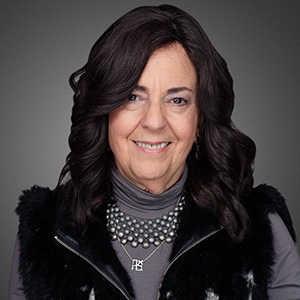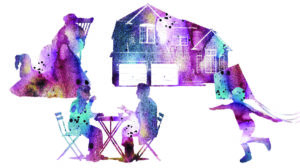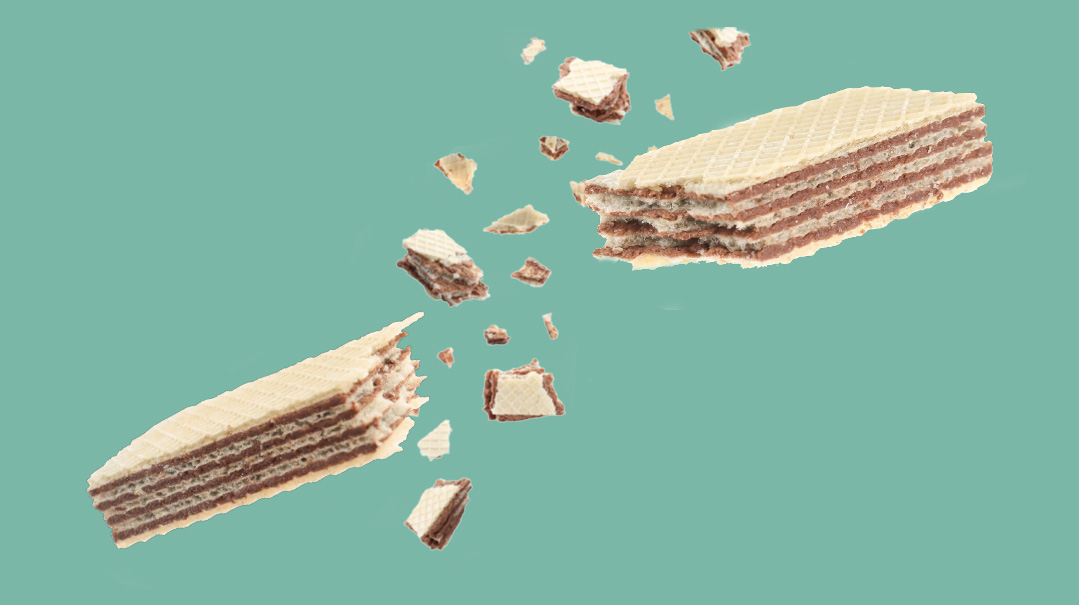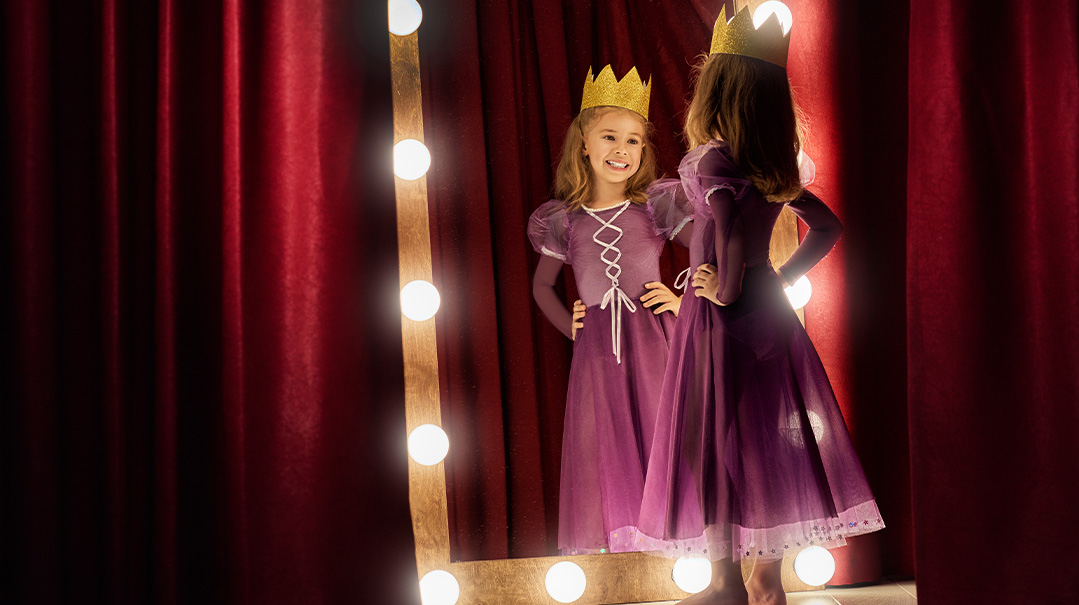“It’s Going to Be Okay”

The impossible answer to the nagging, unspoken question: why is this the plan?

I closed my Google document, which opened with “Letter to the Editor, Dear Mishpacha mishpachah,” and closed with “B’ahavah, Ahava.”
It was, I assumed, my final piece about Saadya in the magazine. A long and happy relationship, bringing infinite joy to the subject of the many articles and, I hoped, providing more than mere reading satisfaction to readers.
But then, the emails started arriving, WhatsApps, texts, phone calls…. “You don’t know me but I know your son through your writing and I share your loss as if it were my own,” they said. Someone forwarded a shiur given by a speaker I don’t know, who’d never met Saadya. Based on what he had read through the years, he spoke the week after Saadya’s petirah about his positivity, suggesting a “Smile for Saadya’’ campaign as a zechus for his neshamah.
An old neighbor relayed that Saadi was her first exposure to, and had formed her attitudes toward, special children. She recalled being instructed, “If you see Saadya on his tricycle, on your side of the block, gently return him to his (either frantic or oblivious) parents.” (No gates were high enough or locks strong enough to deter Saadya from his need for independence — a trait that served him far better as an adult than as a five-year-old!)
Then came a letter that took my breath away. I don’t know the age or location of the writer (and changed details to protect privacy): “I never met your son except for reading about him in Family First,” he wrote. “I have an 11-year-old brother with Down Syndrome. I wanted a brother like other guys have, and I was kind of angry at Hashem. Then I read about all the things Saadya did and how he changed people. I saw my brother in a new way.
“He knows all the Jewish singers better than other guys’ brothers, and there are lots of things we can do together. I saw that even if he looks different, there are many ways we’re alike. He plays a great game of basketball and really loves people, no matter who they are.
“That’s how your son changed me. Your son changed a lot of people, and he will always be remembered. Dovid.”
Thank you, Dovid! I hope you’re reading this article. You gave me a gift. There’s no such thing as “closure” for the wound of losing someone we love (especially a child). It’s an oxymoron; you can’t close an open wound that can never heal. But what you can get, or hope to acquire, is clarity. The impossible answer to the nagging, unspoken question: why is this the plan?
During shivah a nephew told me about a gadol who’d suffered the loss of a child. When someone asked, “The Rosh Yeshivah has no kushyos (questions)?” the gadol replied, “I have kushyos, but I’m not ready to do what’s necessary to get the tirutzim (answers).” No answers are given, but Dovid, you gave me some understanding as to why this journey had to take the form it did.
At Saadya’s birth 36 years ago, world-class experts assured us he’d never be capable of an independent life, suggesting “institutionalization” as the best long-term life plan for him. But he defied their dire predictions. He lived an incredibly meaningful and joyful life, both for himself and for others. It enabled one young man named Dovid grow to appreciate and love his brother, so two lives took a different course. If you save a life, you save a world. Saadya, in his quest for a full life, saved a world.
Clarity has come in many forms. On Purim, Saadya, healthy and robust, delivered my homemade challos to everyone on the block. “All right, Mom, if that’s what you want.” From that experience we went to, well, to a levayah watched by thousands, to a shivah in which everyone who loved him sat alone, and now… the reality of his absence in this world.
Why is there such a degree of mourning, of loss, of admiration? Yes, he was a lovely young man with special needs. Yet tributes abound, personal and public, from people who’d known him years ago. “I always missed him when he didn’t come to activities.” “It’s been over two decades since we were together, but I still think of him and it gives me koach.”
Why the hespedim fitting, perhaps, for a gadol b’Yisrael? After much thought (and sleepless nights providing ample time for contemplation), I’ve come to a relative level of clarity.
Saadya wasn’t born with a “glow of greatness”; in fact, predictions were pretty dismal. He didn’t know Shas by bar mitzvah. He wasn’t even verbal when he entered school at five, due to a chronic hearing issue that was finally addressed.
But he moved mountains with his determination, his selfless motivation to make people happy, to make “everything okay.” His every aliyah to the Torah, his time in Israel, his siyum, and yes, even his venturing into the depths of the New York subway system, all translate into a message: proof positive that everyone can break the barrier of their supposed limitations.
During a Zoom family shivah visit, my nephew apologized for closing, as he needed the Zoom platform to give a shiur for our kiruv program, Lev Akiva Shama. He told me the subject would be “chesed b’dibbur,” using speech as a form of chesed, a trait Saadya perfectly exemplified. Everyone who contacted us made reference to how Saadi always said things to make others feel better or to decrease tension between people, told jokes to enliven mesibos, had enthusiasm when speaking in learning with his rebbi.
“Do you realize the irony?” I said to my nephew. “Speech was Saadya’s only true ‘disability.’ All the speech therapy in the world couldn’t offset the physical aberration that resulted in a fairly significant speech impediment. Yet no one ever mentioned it. It’s as if it didn’t really exist. I realize now, for Saadya, it really didn’t.”
Yes, he knew he had to repeat things sometimes; he’d even spell out a word if I looked blank. He practiced kiddush and the words of an aliyah to get it just right. But he was always “one of the guys” at camp, at yeshivah, in our house. He kept his eye on the same goals as his siblings: yeshivah, basketball, driving (“When can I take driving lessons?”), telling everyone he was going with someone else to prove he could go see his father run in the New York City Marathon by taking the subway alone (kudos to the NYPD for responding to that adventure.) Learning in Israel, Yeshiva University, flying by himself.
Maybe he had to speak more slowly, maybe he had to run a little harder, but he had the same goal as others: “I’m going to do it all. I’m going to sing and dance and do cartwheels at every simchah, and fill the world with happiness.”
One of the outstanding professionals working with Saadya told me they were attempting to introduce the concept of, “Is it true or relevant?” (e.g., regarding his intention to make a CD, develop a working relationship with one of the musical greats in the Jewish world, or spend a prolonged period in Israel). But maybe, just maybe, he always had one foot in the world where everything is true and relevant, and it was we who didn’t know it.
And now he is in that World. And I think I’m happy for him. At least, I’m working on it. Maybe lots of people are working on it with me. Yehi zichro baruch.
(Originally featured in Family First, Issue 694)
Oops! We could not locate your form.












